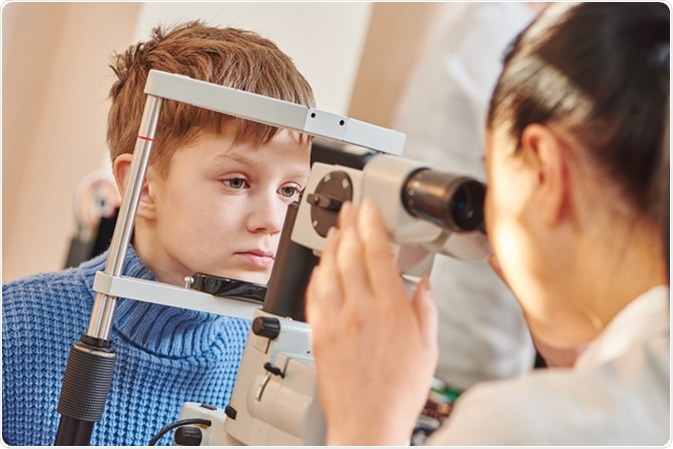Leading Cardiologist Andalusia: Your Companion in Heart Health
Leading Cardiologist Andalusia: Your Companion in Heart Health
Blog Article
Is Refractive Surgical Treatment Right for You? Factors to Think About for Better Eyecare
In the world of eye care, the decision to go through refractive surgical procedure is a significant one that requires thoughtful factor to consider. As individuals seek clearness and liberty from the constraints of restorative lenses, many factors come right into play when identifying the viability of such a treatment. From the intricacies of one's ocular health and wellness to the intricacies of personal expectations and everyday routines, each facet holds value in the broader landscape of refractive surgery candidacy. By examining these crucial components with treatment and accuracy, a more clear course towards informed decision-making emerges.
Eye Wellness Analysis
When taking into consideration refractive surgical procedure, an extensive eye health and wellness assessment is essential to assess the viability of the treatment for every individual. andalusia pediatrics. This assessment involves a collection of tests and examinations conducted by an eye treatment expert to identify the total health and wellness of the eyes, the presence of any kind of underlying conditions, and the stability of the refractive mistake
During the analysis, various elements are taken into consideration, such as the client's case history, current eye prescription, corneal density, pupil dimension, and tear film high quality. These evaluations aid to determine any kind of contraindications to refractive surgical treatment, such as corneal abnormalities, cataracts, or unattended eye infections. Additionally, the evaluation aids to manage individual expectations relating to the possible outcomes of the surgery based upon their unique eye attributes.
Inevitably, the eye health assessment is important in ensuring the safety and security and effectiveness of refractive surgery, as it provides important insights into the person's eye wellness standing and aids determine the most appropriate treatment choices for accomplishing ideal aesthetic results. (eye center andalusia)
Way Of Living Assessment
A thorough way of life evaluation is integral in figuring out the viability of refractive surgical procedure for an individual's aesthetic modification demands. Way of living variables such as profession, pastimes, and daily tasks play an essential function in the decision-making procedure relating to refractive surgery.
In addition, lifestyle routines such as sporting activities involvement, exterior tasks, and even skincare regimens can affect the recovery procedure and general success of refractive surgery. Individuals who involve in call sporting activities may need to take extra safety measures to shield their eyes during the recovery period. Furthermore, people with considerable sun direct exposure might call for added post-operative care to prevent problems. By carrying out a thorough way of life analysis, eye treatment specialists can customize their referrals and treatment strategies to fulfill the special demands of each person, ultimately leading to improved visual outcomes and contentment.
Expectation Alignment

Individuals need to comprehend that while several individuals attain 20/20 vision or better complying with refractive surgery, some may still call for glasses for certain activities like analysis or driving at evening. Managing these assumptions helps stop dissatisfaction and discontentment post-surgery, leading to an extra positive general experience for the patient.
Danger Evaluation

Aspects that may boost the threat of issues consist of age, particular clinical problems like autoimmune diseases, unpredictable vision prescription, thin corneas, and impractical patient expectations. In addition, choosing a knowledgeable and competent doctor, complying with pre and post-operative treatment instructions vigilantly, and divulging any kind of relevant medical history can aid alleviate threats.
To minimize the probability of difficulties, eye doctors conduct extensive pre-operative examinations to recognize any kind of contraindications to surgical procedure. They likewise review the potential risks and benefits with clients during the appointment procedure. By engaging in open interaction and shared decision-making, both the person and the eye doctor can Full Article function with each other to establish if refractive surgical procedure is the ideal option based upon private danger profiles and desired outcomes.
Consultation Importance
Considering the crucial role of educated find decision-making in assessing threats and potential difficulties in refractive surgical procedure, the appointment procedure holds considerable significance in directing patients in the direction of ideal results. During the appointment, the eye doctor assesses the client's eye health and wellness, refractive errors, and total suitability for surgery. This first analysis is important in identifying one of the most ideal treatment for each person, taking into consideration factors such as corneal density, pupil dimension, and existing eye problems.
Moreover, the consultation functions as a chance for individuals to discuss their assumptions, issues, and any kind of concerns they might have concerning the surgery. Clear interaction between the individual and the surgeon is essential to make sure practical expectations and a comprehensive understanding of the prospective threats and benefits included.
In addition, the examination permits the cosmetic surgeon to describe the different medical options offered, their corresponding results, and the post-operative treatment required. This detailed conversation empowers clients to make knowledgeable choices about their eye care, causing far better fulfillment and end results post-surgery.
Conclusion
Finally, people considering refractive surgical treatment must undertake a comprehensive eye health and wellness examination, analyze their way of living behaviors, align their expectations with possible outcomes, assess the connected threats, and prioritize examinations with eye treatment specialists. These aspects play an important duty in figuring out the suitability of refractive surgical treatment for every individual, making certain ideal outcomes and contentment with the procedure.
Patients taking into consideration refractive surgical procedure frequently have high expectations concerning the outcomes, expecting excellent vision without the need for glasses or contact lenses. While refractive surgery can greatly boost vision and minimize reliance on visual help, it is critical for people to comprehend that results may differ based on private elements such as the degree of refractive mistake, corneal thickness, and overall eye check wellness.
By engaging in open interaction and shared decision-making, both the individual and the ophthalmologist can work with each other to establish if refractive surgical treatment is the right option based on individual threat accounts and desired end results.
Thinking about the crucial duty of notified decision-making in assessing risks and potential issues in refractive surgery, the appointment process holds substantial significance in guiding individuals towards ideal results. During the examination, the ophthalmologist examines the patient's eye health and wellness, refractive mistakes, and general suitability for surgical treatment.
Report this page